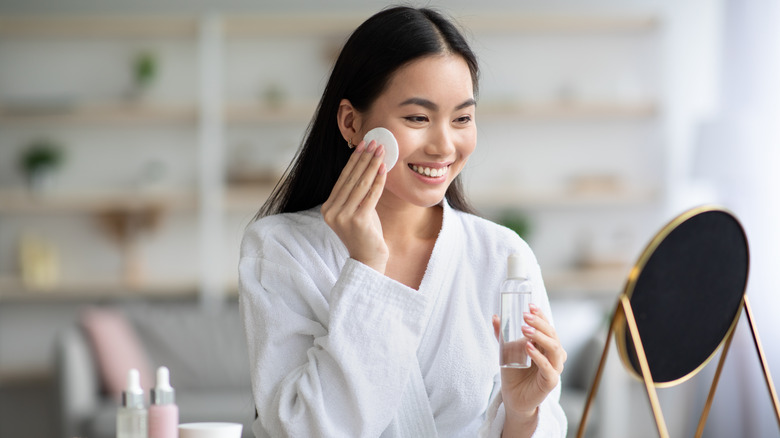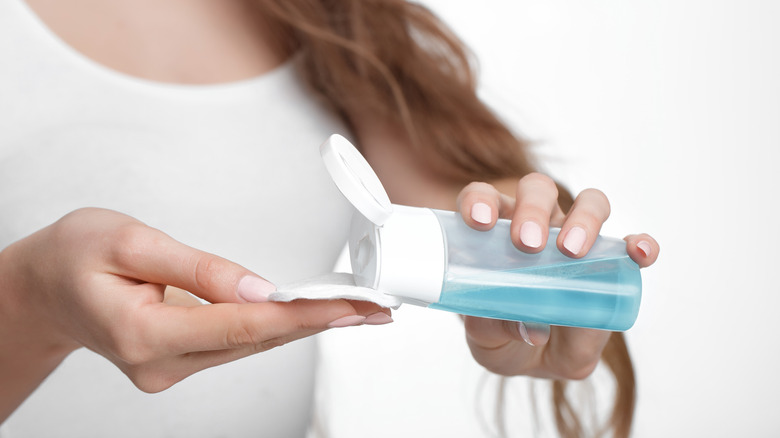The Real Difference Between Toner And Astringent
In the world of skincare products, there are enough options to make your head spin. And while you might have a favorite cleanser, moisturizer, and sunscreen already, you may still wonder about all those bottles of toners and astringents that line the store shelves. What's the difference between the two, and do you need them?
While common skincare steps include cleansing, moisturizing, and applying sunscreen, toning may be missing from many of our routines. Most of us don't need any convincing to wash our faces or layer on sunscreen. But what's the deal with toners and astringents?
Toners and astringents were first developed and marketed back when bar soap and cold cream were the two basic facial cleansing options — and both of these left a noticeable residue on the skin. Toners and astringents were used to clean off the remaining residue (via Verywell Health). But skincare products have come a long way in recent decades, and the need to remove residue from these products isn't that common anymore. Thus, the main purposes of astringents and toners have shifted a bit.
When to use an astringent versus a toner
Astringents and toners are water-based products that clean the skin more deeply than cleansers alone. They also often contain ingredients that help improve skin texture, reduce the appearance of pores, and balance pH levels (via Healthline). The main difference between them is that an astringent usually has a higher alcohol content and is designed to remove excess oil from the skin. Board-certified dermatologist, Joshua Zeichner, told Allure, "Astringents are either alcohol-based or made with witch hazel." This also tends to make them harsher on the skin than toners.
The general rule of thumb is to use an astringent for oily skin and a toner for dry or combination skin, according to Allure. In either case, the skin should feel good and refreshed after use. If you experience redness, tightness, stinging, or inflammation after application, the product may be too harsh for your skin type. Stop using it and consult with a doctor or dermatologist who can recommend products that are better suited for your skin type.
And remember, there's no scientifically proven reason why you need to use either a toner or an astringent. Especially for sensitive skin types, less is often better, and you won't be harming your skin if you decide to scrap this step altogether. But don't even think about ditching sunscreen.


